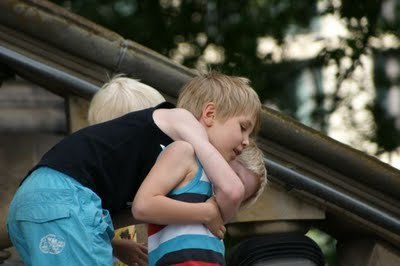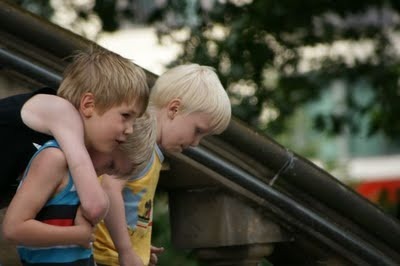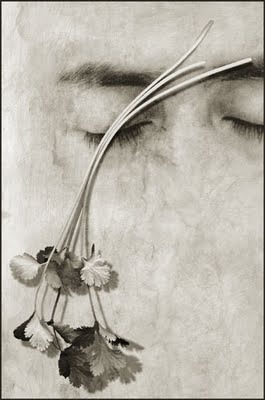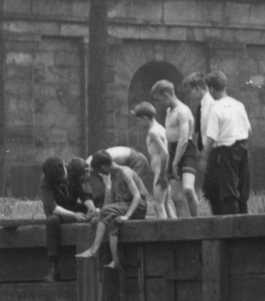Beth Kephart's Blog, page 234
July 5, 2011
The Dear Reader Guest Column and Six-Book Giveaway
 Today I'm honored to be stepping in as guest columnist at Dear Reader, while Suzanne Beecher, the creator of this marvelous book- and book-club centric site, takes a well-earned vacation with her grandchildren. I'm talking about the younger, life-changing readers I've met in the column (you all know who you are!), and as part of the program, I'm hosting my biggest-ever book giveaway—all six of my young adult novels (including my final galley for the forthcoming
You Are My Only
) are being offered.
Today I'm honored to be stepping in as guest columnist at Dear Reader, while Suzanne Beecher, the creator of this marvelous book- and book-club centric site, takes a well-earned vacation with her grandchildren. I'm talking about the younger, life-changing readers I've met in the column (you all know who you are!), and as part of the program, I'm hosting my biggest-ever book giveaway—all six of my young adult novels (including my final galley for the forthcoming
You Are My Only
) are being offered.Join us for the fun.




Published on July 05, 2011 05:01
July 4, 2011
Watching WASTE LAND and Visiting Immaculata with my Salvadoran mother-in-law
 My Salvadoran mother-in-law (the star, in part, of my memoir, Still Love in Strange Places) has been in town, nursing a leg that has borne the brunt of a brave life—an early operation, a terrible accident at Nora's coffee farm, repeated torques and falls. Just two weeks ago, yet another cast was removed, leaving Nora commandeering a borrowed cane. So that she is here, and we look for things to do that will not tax her further.
My Salvadoran mother-in-law (the star, in part, of my memoir, Still Love in Strange Places) has been in town, nursing a leg that has borne the brunt of a brave life—an early operation, a terrible accident at Nora's coffee farm, repeated torques and falls. Just two weeks ago, yet another cast was removed, leaving Nora commandeering a borrowed cane. So that she is here, and we look for things to do that will not tax her further.Yesterday we drove Nora to Immaculata University, where, in 1952, she spent a year studying with her Salvadoran girlfriends. A dear nun let us in through a back door, showed us the elevator, and we were in—walking the halls that Nora once walked as an eighteen-year-old girl in a brand-new (and only briefly borrowed) country. Horses brought the students the mail, we learned. The girls smoked across the street. A taxi ("very cheap, you know") would take them down country roads, to West Chester, where they would buy the "more delicious" food.
This afternoon, we've been sitting together watching WASTE LAND, the Academy Award Nominee for Best Feature Documentary, which can be instant-queued from Netflix. I could hardly do a better job of succinctly describing the essence of this deeply moving, so ultimately humane film than the film's own web site, so I paste that description in here.
Filmed over nearly three years, WASTE LAND follows renowned artist Vik Muniz as he journeys from his home base in Brooklyn to his native Brazil and the world's largest garbage dump, Jardim Gramacho, located on the outskirts of Rio de Janeiro. There he photographs an eclectic band of "catadores"—self-designated pickers of recyclable materials. Muniz's initial objective was to "paint" the catadores with garbage. However, his collaboration with these inspiring characters as they recreate photographic images of themselves out of garbage reveals both the dignity and despair of the catadores as they begin to re-imagine their lives. Director Lucy Walker (DEVIL'S PLAYGROUND, BLINDSIGHT and COUNTDOWN TO ZERO) and co-directors João Jardim and Karen Harley have great access to the entire process and, in the end, offer stirring evidence of the transformative power of art and the alchemy of the human spirit.

Watch this movie straight through its closing credits, and you'll sit in silence afterward—reminded of the power of yearning over having, of making over done, of open hearts versus decided ones. Sit with those you have come to love, and reflect on what finally matters.[image error]




Published on July 04, 2011 15:24
Every time I start writing a book
 it's as if I've never written one before. I forget how hard the early days are. I do too much research, overcrowd my head, rush toward those bits of plot I know, leave too little room for language.
it's as if I've never written one before. I forget how hard the early days are. I do too much research, overcrowd my head, rush toward those bits of plot I know, leave too little room for language.Then I remember what it is to take it slow. To back it up. To make the story, line by line. To allow an afternoon to pass without writing a single word. It's all right, I remember, to sit here dreaming. It's fine—in fact, it is essential—to write what I won't use to discover what I will.
Will the game of pitch and toss stay?
I don't know.
Will Molly return the penny?
It might not matter, after all.
Except that it all matters. It's process. [image error]




Published on July 04, 2011 06:47
July 3, 2011
living long
 I put those hydrangeas from yesterday's thank-you vlog to good use (here and elsewhere) and deeply enjoyed having our friends John and Andra join us (and my husband's world-traveling, coffee-farm-managing Salvadoran mother) for an evening beneath the sweetened skies.
I put those hydrangeas from yesterday's thank-you vlog to good use (here and elsewhere) and deeply enjoyed having our friends John and Andra join us (and my husband's world-traveling, coffee-farm-managing Salvadoran mother) for an evening beneath the sweetened skies.I may be writing and reading at an old snail's pace these days. But I am living long. And that counts, too.




Published on July 03, 2011 06:02
July 2, 2011
a vlog in celebration of blooms, fireworks, news, you
A thank you vlog, in a stolen moment.
For Tamra Tuller, Michael Green, Jill Santopolo, and Philomel, for their faith in Small Damages. For the gift of hydrangeas. For the quiet now of making a house ripe for guests. And for Q who forgives me even when knows should be know.... :)
Happy Fourth of July Weekend to you all.




For Tamra Tuller, Michael Green, Jill Santopolo, and Philomel, for their faith in Small Damages. For the gift of hydrangeas. For the quiet now of making a house ripe for guests. And for Q who forgives me even when knows should be know.... :)
Happy Fourth of July Weekend to you all.




Published on July 02, 2011 10:50
Which photograph tells a more invigorated story?

 It's the same three boys. The same pair of steps at the Berlin cathedral. Only seconds separate the scenes. But it seems to me that these two photographs tell very different stories, just as the two nearly identical sentences I have been working through this morning would each take my new novel (only 3,000 words long at the moment) into very different directions.
It's the same three boys. The same pair of steps at the Berlin cathedral. Only seconds separate the scenes. But it seems to me that these two photographs tell very different stories, just as the two nearly identical sentences I have been working through this morning would each take my new novel (only 3,000 words long at the moment) into very different directions.In the early writing of a book, the smallest-seeming decisions both delimit and define.
It's all so fragile. It takes so much time.




Published on July 02, 2011 07:39
July 1, 2011
the future of publishing: a note in honor of my up and coming friends
 I am quoting now from a comment I received earlier this week from Liviania, one of my very first young friends in this blogging arena. Her words, entire:
I am quoting now from a comment I received earlier this week from Liviania, one of my very first young friends in this blogging arena. Her words, entire:I'm at the Columbia Publishing Course right now, and one of the themes is that publishers need to be more transparent. They need to talk about what they do, so that authors understand the value of a publisher versus just putting an ebook on the internet themselves.I write about my editors, my copy editors, my dream editors, those collective teams because they matter to me. Because they have changed the way I've thought about books. Because they have made room, from time to time, for my stories, while keeping me safe from myself.
Your editor, your copyeditor . . . you blog so frequently and beautifully about the team behind your books. I'm sure they appreciate it even more than you can imagine.
Judging from the quality of the minds of my students and of those younger bloggers who have befriended me both on this page and off of it, I can say with absolute assurance that there is a rising class of editorial types—a stellar cadre of wordlovers and wordsmiths, grammatical giants, and opinionated tastemakers that will define our next generation of books if we, as a culture, remain open to them.
We must, I think, remain open to them. Eric Felten, writing in the Wall Street Journal (which has lately emerged as a hotspot for book talk) is of that opinion, too. Here he is, opining with a piece he's called: "Cherish the Book Publishers—You'll Miss Them When They're Gone."




Published on July 01, 2011 05:48
June 30, 2011
the big news: Small Damages sells to Tamra Tuller at Philomel Books
 I began my travels to southern Spain more than 16 years ago. I met an old man named Luis, who cooked for me when I was sick. I found a bathtub full of oranges high up, on an old, odd roof. I met one of the King's best friends, southern Spain's finest breeder of bulls, and he took me out in an open jeep, where the unsuspecting herd was chewing. I watched the flamenco dancers dance; I climbed the towers; I studied the bridge. I read of the war, and I read of survivor, and I tracked down old memoirs from the Franco era, preserving the recipes I'd find clenched within the pages. Seville was home to my brother-in-law, Rodi, his wife, and their children, and so to Seville my husband, son, and I would repeatedly return. I walked through doors few do.
I began my travels to southern Spain more than 16 years ago. I met an old man named Luis, who cooked for me when I was sick. I found a bathtub full of oranges high up, on an old, odd roof. I met one of the King's best friends, southern Spain's finest breeder of bulls, and he took me out in an open jeep, where the unsuspecting herd was chewing. I watched the flamenco dancers dance; I climbed the towers; I studied the bridge. I read of the war, and I read of survivor, and I tracked down old memoirs from the Franco era, preserving the recipes I'd find clenched within the pages. Seville was home to my brother-in-law, Rodi, his wife, and their children, and so to Seville my husband, son, and I would repeatedly return. I walked through doors few do.For years, I worked on a book I called Small Damages, except for the years during which I thought of it as The Last Threads of Saffron. The novel evolved over time—became a story of gypsies, a story of the deaf, a story of an old cook's love affair. Last summer, just about this time, I shared a draft of the book with Tamra Tuller, an editor at Philomel Books, whose Kathryn Erskine (Mockingbird) would go on to win the 2010 National Book Award and whose Ruty Sepetys (Between Shades of Gray) would appear on the bestseller list in her debut week earlier this year. Tamra had ideas about Small Damages. She encouraged me to keep working. She emerged as one of those rare editors who agrees to read again, who quietly and gainfully encourages.
Tamra shares, with me, a love of travel, a love of exotic foods, even a love of the TV show "Top Chef." Tamra is also, as of today, thanks to the announcement (below) in the PW Children's Bookshelf, the editor of Small Damages. I don't think I can express just what this means to me.
Tamra is kind, and she is smart. She works within a team—which includes my dear former editor Jill Santopolo (who introduced me to Tamra by way of Ruta's book) and the remarkable Michael Green—that makes a writer feel at home.
My great thanks, then, to Tamra, to Jill, to Michael, to Philomel, and to my agent, Amy Rennert. My thanks, too, to Kate Moses, Susan Straight, Alyson Hagy, Rahna Reiko Rizzuto, and Ivy Goodman, who read this book over time and kept me believing in it. Maybe it took ten years and eighty drafts to write the book that Small Damages finally is. But the book feels brand new and just right and full of hope in the hands of Tamra Tuller.
Tamra Tuller at Philomel Books bought world rights to National Book Award finalist Beth Kephart's YA novel Small Damages, a coming-of-age story set in southern Spain about the difficult choices a teenaged girl faces when she gets pregnant. The publication is scheduled for summer 2012; Amy Rennert of the Amy Rennert Agency brokered the deal.




Published on June 30, 2011 14:36
historical fiction as a way of living now
 These brilliant words on historical fiction—what it should do, why it matters—come by way of Andrew Miller, by way of the Guardian, by way of Shelf Awareness. In all that I write that looks back, I am, like Miller, looking at now. He says it better than I ever could:
These brilliant words on historical fiction—what it should do, why it matters—come by way of Andrew Miller, by way of the Guardian, by way of Shelf Awareness. In all that I write that looks back, I am, like Miller, looking at now. He says it better than I ever could:As a boy I understood perfectly that history is not something apart from us, sealed off. It is in our blood, our music, our language, the buildings we pass on the way to work. And at its best, historical fiction is never a turning away from the Now but one of the ways in which our experience of the contemporary is revived. Janus-like, such books look both to the past and to the present, and there is no need to laboriously draw out the parallels for they suggest themselves, inevitably and plentifully.




Published on June 30, 2011 07:27
June 29, 2011
The Writing of the Dangerous Neighbors Prequel Begins in Earnest

There was a story Francis told about two best friends gone swimming, round about Beiderman's Point, back of Petty's Island, along the crooked Delaware. "Fred Spowhouse," he'd say, his breath smelling like oysters and hay. "Alfred Edwards." The two friends found drowned and buckled together—Spowhouse clutched up tight inside Edwards' feckless arms.It would practically kill Francis, every time he told the tale—the way the one died trying to put the rescue on the other. Francis would say it was the worst thing possible, the worst story told, but Francis didn't know the half of it. Worst thing possible was what happened to Francis six months later, and how it happened to Francis all alone.




Published on June 29, 2011 06:02



